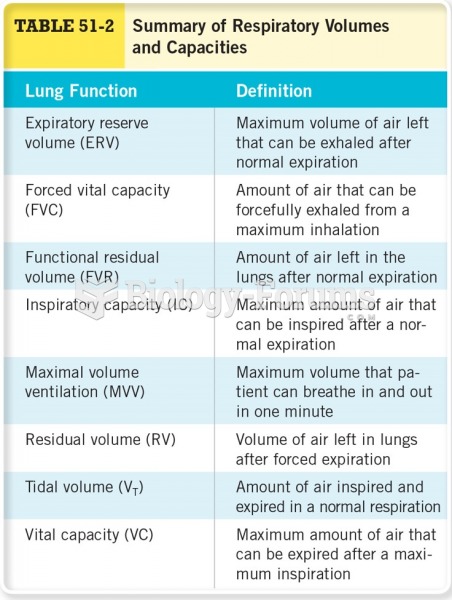|
|
|
Pubic lice (crabs) are usually spread through sexual contact. You cannot catch them by using a public toilet.
Nitroglycerin is used to alleviate various heart-related conditions, and it is also the chief component of dynamite (but mixed in a solid clay base to stabilize it).
Most women experience menopause in their 50s. However, in 1994, an Italian woman gave birth to a baby boy when she was 61 years old.
Approximately one in four people diagnosed with diabetes will develop foot problems. Of these, about one-third will require lower extremity amputation.
Drug abusers experience the following scenario: The pleasure given by their drug (or drugs) of choice is so strong that it is difficult to eradicate even after years of staying away from the substances involved. Certain triggers may cause a drug abuser to relapse. Research shows that long-term drug abuse results in significant changes in brain function that persist long after an individual stops using drugs. It is most important to realize that the same is true of not just illegal substances but alcohol and tobacco as well.
 A woman in a net on a Congo shore. Although the importation of slaves was illegal after 1807, histor
A woman in a net on a Congo shore. Although the importation of slaves was illegal after 1807, histor
 Xenophon (430–357 B.C.E.) Biographer of Socrates and his student as a youth. In addition to four ...
Xenophon (430–357 B.C.E.) Biographer of Socrates and his student as a youth. In addition to four ...




